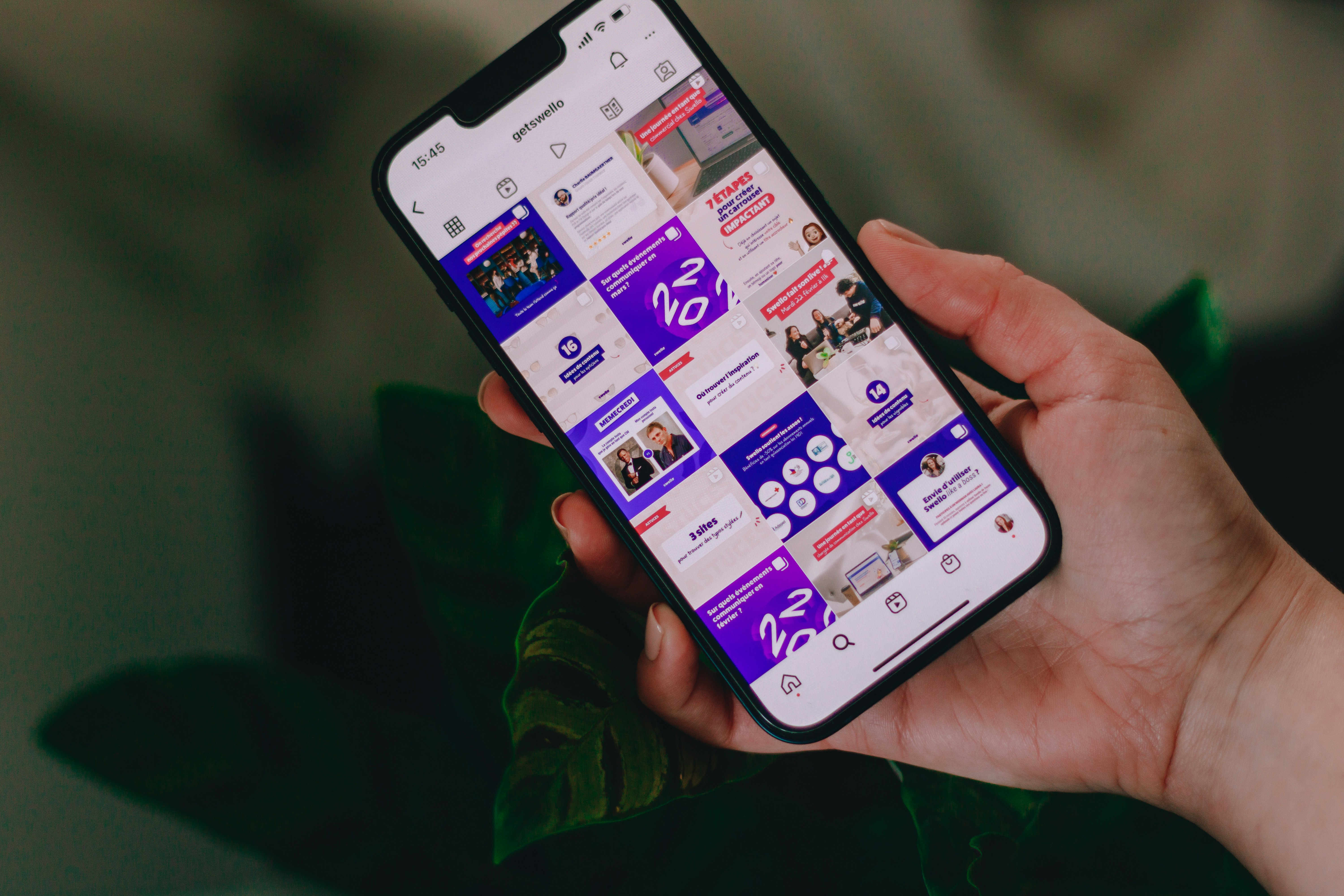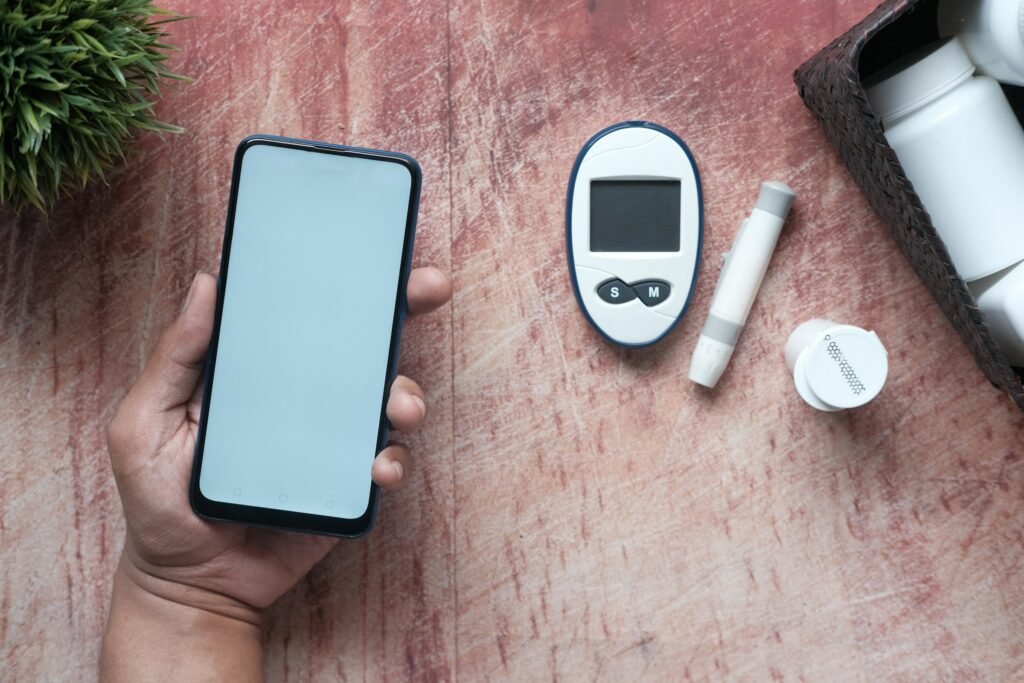
Introduction to Micro-Influencers in Health Marketing
Micro-influencers have emerged as a pivotal force in the evolving landscape of health marketing. Defined as individuals who possess a smaller yet highly engaged audience—typically ranging from 1,000 to 100,000 followers—these influencers create a more personalized and authentic connection with their audience compared to traditional influencers. This distinct dynamic allows brands to tap into a niche market for health and wellness products, reaching consumers who are actively seeking affordable solutions to enhance their well-being.
The rise of social media has significantly amplified the influence of micro-influencers, particularly in the context of health and wellness. Their ability to share genuine experiences and product recommendations resonates more deeply with followers, who often consider these influencers as relatable, trustworthy figures. As consumers become increasingly discerning about health marketing, they tend to gravitate toward micro-influencers, whose advice is viewed as more credible than that of well-known personalities. This phenomenon reflects a shift in consumer behavior, where authenticity and meaningful engagement are valued over broad reach.
Furthermore, micro-influencers often specialize in specific niches within health marketing, such as fitness, nutrition, mental health, or alternative medicine. This specialization allows them to create targeted content that appeals to their audience’s specific interests and challenges, making them an ideal partner for brands looking to promote products effectively. By collaborating with micro-influencers, brands can leverage their unique insights and recommendations to bridge the gap between consumers and affordable health offerings, ultimately achieving better engagement and conversion rates.
In conclusion, the significance of micro-influencers in health marketing cannot be overstated. Their capacity to foster authentic connections and deliver tailored content sets them apart as valuable allies for brands aiming to navigate the competitive landscape of health and wellness products.
The Rise of Micro-Influencers: A New Era in Marketing
The landscape of digital marketing has undergone a significant transformation, largely driven by the ascendance of micro-influencers. These individuals, often defined as social media users who boast a following ranging from 1,000 to 100,000, have emerged as powerful voices in the marketing arena. Numerous factors contribute to their rise, one of the most notable being changes in social media algorithms. Platforms like Instagram and Facebook have prioritized genuine interaction over sheer popularity, favoring content that fosters community engagement. As a result, micro-influencers, who typically cultivate closer connections with their audience, have become more appealing to brands looking to create authentic relationships with consumers.
Another crucial aspect is the evolution of consumer behavior. Today’s consumers are increasingly skeptical of traditional advertising and tend to seek recommendations from individuals they perceive as trustworthy. Micro-influencers often fill this gap, as their followers view them as relatable and approachable figures. This perception greatly enhances the effectiveness of niche marketing. Micro-influencers tend to specialize in particular areas, such as wellness, fitness, or healthy living, allowing brands to connect with distinctly dedicated communities. Consequently, marketing campaigns involving these influencers can yield higher engagement rates and stronger brand loyalty.
As brands recognize the value of aligning with micro-influencers, they are actively shifting their marketing strategies. This shift is reflective of a broader trend within the industry, where companies aim to build authentic connections rather than solely focusing on broad reach. By collaborating with micro-influencers, brands can access devoted audiences that are more likely to engage with their content and products. This collaborative approach not only enhances community trust but also enables brands to deliver tailored messages that resonate on a personal level, ultimately promoting a more effective marketing strategy.
Building Authentic Connections with Audiences
In the realm of health marketing, the emergence of micro-influencers has significantly transformed the dynamics of audience engagement. Micro-influencers, often defined as social media users with followings ranging from 1,000 to 100,000, tend to cultivate more genuine connections with their audiences compared to their macro counterparts. This authenticity plays a crucial role in the way health and wellness products are perceived and adopted. Unlike larger influencers, who may be perceived as distant or commercialized, micro-influencers often engage in heartfelt, relatable dialogues, fostering a sense of community and trust among their followers.
The foundation of a micro-influencer’s influence lies in their authenticity. Their ability to share personal experiences and insights about health and wellness resonates deeply with their audience, creating a relatable narrative around product endorsements. When a micro-influencer shares their genuine experience with a health supplement or fitness regimen, their followers feel a connection that is often absent in more traditional advertising approaches. This connection translates into trust, making audiences more likely to consider the products being endorsed. The perceived sincerity of the influencer’s recommendations enhances the credibility of the message, leading to improved outcomes for health marketing initiatives.
Furthermore, micro-influencers often prioritize engagement over mere follower counts. By interacting with their audience through comments, direct messages, and sometimes even live sessions, they build a rapport that encourages open discussions about health topics. This engagement creates an active community around shared wellness interests, further amplifying the effectiveness of their marketing efforts. As consumers increasingly seek authenticity and relatability in brand interactions, micro-influencers emerge as vital players in the health marketing landscape, harnessing trust to drive impactful health and wellness product endorsements.
How Brands Utilize Micro-Influencers in Health Marketing
In contemporary health marketing, brands are increasingly aware of the significant impact that micro-influencers can have on consumer behavior and brand loyalty. By leveraging the authenticity and relatability of micro-influencers, brands can create tailored campaigns that resonate with their target audiences. These influencers typically boast smaller yet highly engaged followings, allowing for more personalized interactions that often lead to stronger consumer trust and brand credibility.
One effective strategy is product placement. Brands collaborate with micro-influencers to integrate their health products seamlessly into the influencers’ lifestyle content, making it feel natural and unforced. This organic representation fosters an environment where followers are more likely to view the product as a solution to their own health needs. Such placements are particularly effective in the health sector as they offer potential customers not just promotions, but real-world examples of how these products can enhance their well-being.
Moreover, brands often encourage micro-influencers to create organic content showcasing their products in a relatable context. This strategy can include unboxing videos, personal testimonials, and informative posts that discuss health trends and tips. By doing so, brands not only reach a wider audience through the influencer’s network but also cultivate an environment of trust, as followers perceive the content as genuine rather than a mere advertisement.
Additionally, micro-influencers excel in engaging with their audiences, answering questions, and providing support, which reinforces the community aspect of health and wellness. Brands tap into this engagement by encouraging influencers to host Q&A sessions, wellness challenges, or live demonstrations, thereby creating a vibrant dialogue around their products. In a market heavily influenced by health trends, these strategies play a vital role in enhancing brand visibility and consumer connection.

Cost-Effectiveness of Micro-Influencer Campaigns
In recent years, the landscape of digital marketing has shifted significantly, particularly within the health and wellness sector. One of the most notable trends is the increased focus on micro-influencers, who are often characterized by their smaller yet highly engaged followings. This brings about unique advantages, particularly in terms of cost-effectiveness for brands looking to maximize their marketing budgets. Micro-influencers typically charge lower fees compared to their larger counterparts, making them an attractive option for companies aiming to promote health-related products or services without incurring substantial expenses.
One of the key benefits of collaborating with micro-influencers is the high return on investment (ROI) that brands can expect. Research has shown that micro-influencers can deliver a 60% higher engagement rate compared to larger influencers. This heightened engagement often translates to better conversion rates, as audiences are more likely to trust and act upon recommendations from influencers with whom they feel a personal connection. By leveraging this dynamic, brands focused on health marketing can achieve more significant results while spending less money, thereby making their campaigns more economically viable.
Additionally, micro-influencers often possess niche expertise or specific knowledge within the health and wellness domain, which allows for more targeted marketing efforts. This specialization enables brands to reach specific demographics that align with their products, enhancing the overall effectiveness of marketing campaigns. For consumers seeking affordable health solutions, this targeted approach ensures that they are exposed to options that genuinely match their interests and needs. Ultimately, the cost advantages and personalized marketing strategy associated with micro-influencer partnerships create a powerful synergy that benefits both brands and consumers seeking wellness opportunities on a budget.
Success Stories: Brands Thriving with Micro-Influencers
Micro-influencers have emerged as a powerful tool in health marketing, particularly for brands looking to create authentic connections with their target audiences. Several notable success stories highlight how brands have effectively leveraged these influencers to achieve impressive results. For instance, a small organic skincare brand utilized micro-influencers to promote its natural products. By partnering with individuals who were passionate about clean beauty and health, the brand gained significant traction on social media. This approach not only increased brand awareness but also resulted in a 150% increase in sales within a quarter.
Another compelling example comes from a fitness-oriented snack company that sought to tap into the wellness community. By collaborating with micro-influencers who specialized in nutrition and lifestyle, the brand crafted a digital campaign that resonated with followers through relatable content and personal testimonials. This partnership led to a 75% increase in their social media engagement rates, showcasing how micro-influencers were essential in driving conversations around the brand and its mission. The campaign highlighted the importance of authentic endorsements in health marketing, as potential customers often trust recommendations from fellow health enthusiasts more than traditional advertisements.
Moreover, a mental wellness app achieved remarkable success by engaging micro-influencers specializing in mental health advocacy. Their campaign focused on sharing user stories and experiences with the app, which helped demystify mental health tools while encouraging followers to seek help. The app saw a 300% rise in downloads following the influencer campaign, demonstrating the potential of building genuine relationships through social media. In each of these cases, brands effectively utilized micro-influencers to establish credibility, foster community engagement, and drive measurable growth. As health marketing continues to evolve, these success stories serve as an inspiration for others aiming to optimize their strategies through impactful influencer partnerships.
Consumer Benefits of Following Micro-Influencers
In today’s digital age, consumers increasingly seek authentic voices in the vast landscape of health and wellness marketing. Micro-influencers, typically defined as individuals with 1,000 to 100,000 followers, offer a unique connection that resonates deeply with their audience. This connection fosters trust, which ultimately leads consumers to discover health and wellness products that are both effective and affordable.
One of the critical advantages of following micro-influencers is accessibility to affordable health solutions. Unlike traditional advertising, which often promotes high-priced products, micro-influencers tend to share recommendations based on personal experiences rather than corporate sponsorships. As a result, their audiences often benefit from insights into cost-effective wellness products that align with their budgets. Micro-influencers often highlight lesser-known brands or products, allowing followers to save money while still achieving their health goals.
Further, micro-influencers frequently provide tailored advice suited to specific audiences. These influencers often focus on niche areas within health and wellness, whether it’s fitness routines, dietary tips, or mental health strategies. Their specialized content means that followers can find guidance that directly addresses their unique needs and preferences. This personalized approach enhances the consumer’s wellness journey, as they can apply insights that feel genuinely relevant to their lives.
The relatable backgrounds and experiences of micro-influencers also significantly impact consumer behavior. Unlike celebrities who may seem out of reach, micro-influencers often share their struggles and successes, making their advice feel more attainable. As followers see how these influencers navigate their health journeys, they gain motivation and inspiration, feeling empowered to pursue their wellness goals. Consequently, maintaining a connection with these relatable figures creates a supportive community that values shared experiences, facilitating a holistic approach to health.

Future Trends in Micro-Influencer Health Marketing
The landscape of micro-influencer health marketing is poised for significant evolution as brands increasingly recognize the unique advantages offered by these individuals. One notable trend is the growing emphasis on transparency. Consumers are becoming more discerning about the information they consume, particularly regarding health-related products. As a result, brands collaborating with micro-influencers will likely prioritize authenticity and credibility. This means that influencer partnerships must ensure clear communication about product efficacy, ingredient transparency, and the influencer’s own experience with the product. Health claims will require substantiation to establish trust and prevent the dissemination of misleading information.
In addition to transparency, advancements in content creation methods are expected to reshape the collaboration between brands and micro-influencers. With the rise of short-form video platforms, such as TikTok, micro-influencers will increasingly adopt diverse formats beyond traditional posts. Expect to see more interactive content, including live Q&A sessions, behind-the-scenes looks at health journeys, and user-generated content that encourages audience participation. This diversification provides brands with an opportunity to leverage creativity and innovation, fostering engagement while promoting wellness and healthy lifestyles in an accessible manner.
As social media platforms continuously evolve, so too will consumer preferences. The age of generic brand messaging is waning, with individuals seeking personalized and relatable narratives regarding health and wellness. Micro-influencers, often representative of niche communities, can bridge this gap, offering targeted and relatable content that resonates with specific audiences. It is anticipated that brands will increasingly tap into these influencers’ unique perspectives and experiences, creating customized campaigns tailored to meet the diverse interests of consumers. Ultimately, as micro-influencer health marketing matures, adapting to these trends will be essential for brands looking to remain competitive in the ever-changing market landscape.
Conclusion: Embracing Micro-Influencers for Health and Wellness
In recent years, the landscape of health marketing has transformed significantly, with micro-influencers emerging as a vital force in promoting wellness within budgetary constraints. These individuals possess the unique ability to connect deeply with their audiences, leading to authentic relationships that drive engagement and influence purchasing decisions. The insights shared from various studies and case examples throughout the blog have illuminated the distinctive advantages that micro-influencers offer. Their relatability has made them an essential resource for individuals seeking credible health and wellness advice.
Micro-influencers, typically having a follower count between 1,000 to 100,000, engage niche audiences that are often overlooked by larger influencers. This targeted approach enables brands and health entities to reach audiences that are genuinely interested in their messaging, leading to higher conversion rates and increased trust. The personal stories and experiences shared by these influencers resonate more effectively than traditional advertising, creating a community of support and encouragement for followers embarking on their health journeys.
In addition, collaborating with micro-influencers provides a more cost-effective strategy for marketing teams operating within tight budgets. With their favorable engagement rates and increased authenticity, businesses can maximize their return on investment while partnering with individuals who genuinely reflect their brand values. This allows health brands to not only promote their products but also to actively contribute to a culture of wellness, thus making a meaningful impact on people’s lives. By embracing micro-influencers, both consumers and marketers can foster a sustainable approach to health and well-being, ensuring a positive influence on lifestyles without overwhelming financial strain.
